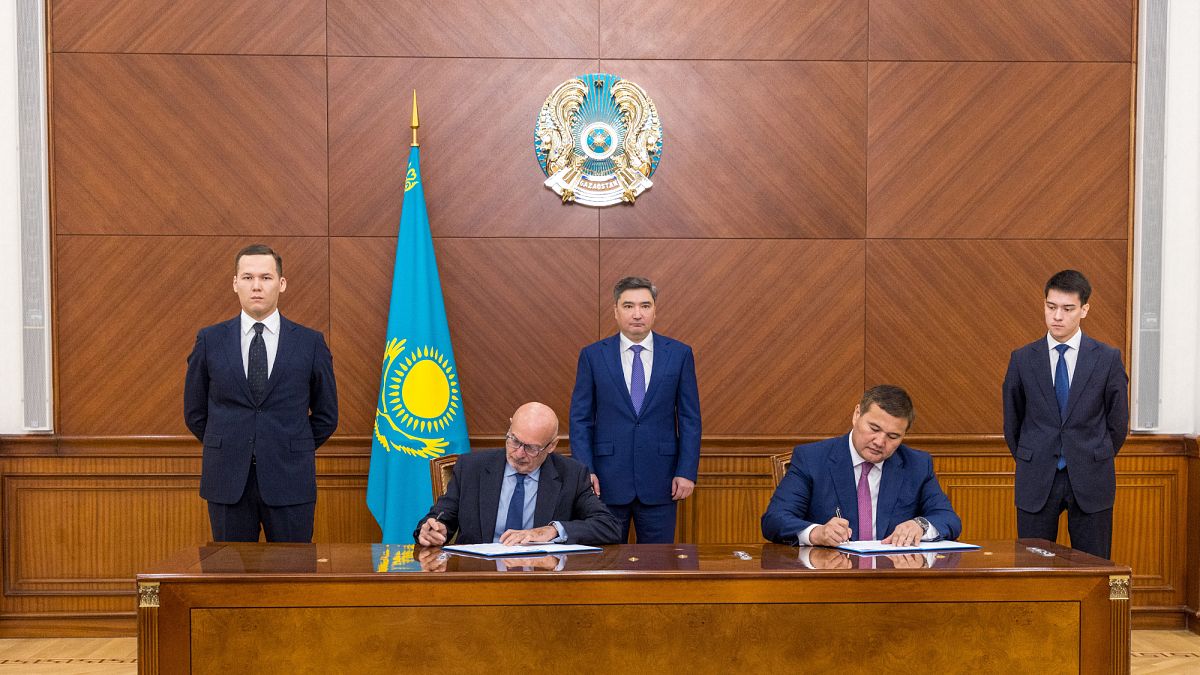

In a series of promising developments across the globe, key economic shifts are shaping the landscape of international trade and investment. Notably, the Spanish Roca Group, a leader in bathroom hardware manufacturing, announced a sizable investment in Kazakhstan, marking a significant expansion into Central Asia. Meanwhile, across the Atlantic, Canada has resumed trade talks with the United States following the rescission of a tech tax, aiming to strengthen cross-border economic relations. These endeavors highlight the dynamic interplay of global markets and trade strategies.
Roca Group’s decision to invest €70 million in constructing a production facility in Kazakhstan underscores its ambition to expand its footprint in Central Asia. This strategic move is aligned with the company’s aim to tap into emerging markets and leverage geographical advantages. The new facility is expected to bolster Roca’s manufacturing capabilities and streamline supply chain operations, enhancing their ability to meet growing demand in the region. The company’s CEO emphasized that this investment reflects a commitment to innovation and sustainable growth in a rapidly transforming economic environment.
Simultaneously, Canadian Prime Minister Mark Carney announced the resumption of trade talks with the United States, fostering a renewed sense of collaboration between the North American neighbors. This development follows Canada’s repeal of a technology tax that had previously caused friction in bilateral relations. As both nations work towards mitigating the impact of prior tariffs, they are focused on creating favorable conditions for businesses and fostering an economic climate that supports mutual prosperity and innovation.
In Europe, discussions around globalization and trade leadership are gaining momentum. According to BMW’s Frank Niederländer, the European Union has a pivotal opportunity to shape the future global trade agenda amid rising geopolitical tensions. The emphasis is not merely on the continuity of globalization but rather on determining who will lead these efforts and under what terms. By navigating internal challenges and effectively positioning itself on the global stage, Europe aspires to establish itself as a formidable force in world trade.
Closer to home, the United Kingdom is experiencing noteworthy economic growth, with a marked increase of 0.7% in the first quarter, the fastest among the G7 nations. This positive trajectory is complemented by a resurgence in mortgage approvals, suggesting enhanced consumer confidence and financial stability. The reduction in tariffs as part of the UK-US trade deal is set to further benefit British carmakers and the aerospace sector, highlighting the potential for robust economic interactions post-Brexit.
This upward trend in economic markers is further supported by initiatives such as the UK Government’s commitment to establishing a National Housing Bank, intended to boost investment in housing and address pressing needs for new homes. Such measures are designed to promote accessibility and affordability in the housing market, fostering economic resilience and community development.
Overall, these strategic advancements in global trade and domestic economic policies illustrate a broader narrative of adaptability and progress. As countries navigate the complexities of international commerce and forge collaborative pathways, the potential for sustainable economic growth and shared prosperity becomes increasingly attainable.
Source: {link}
